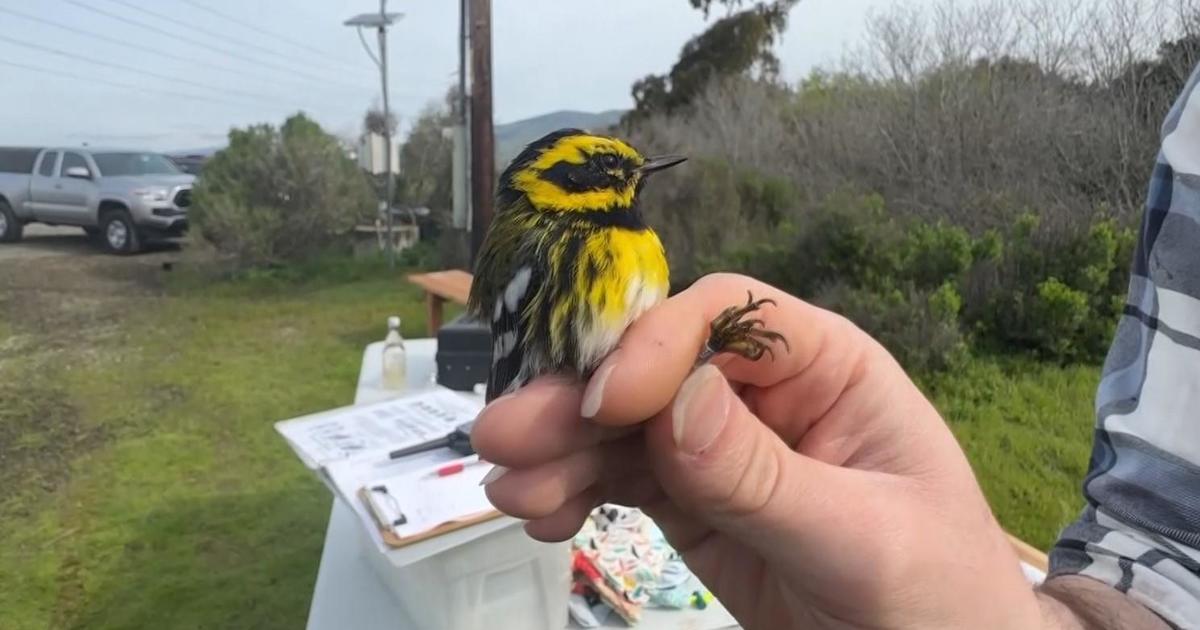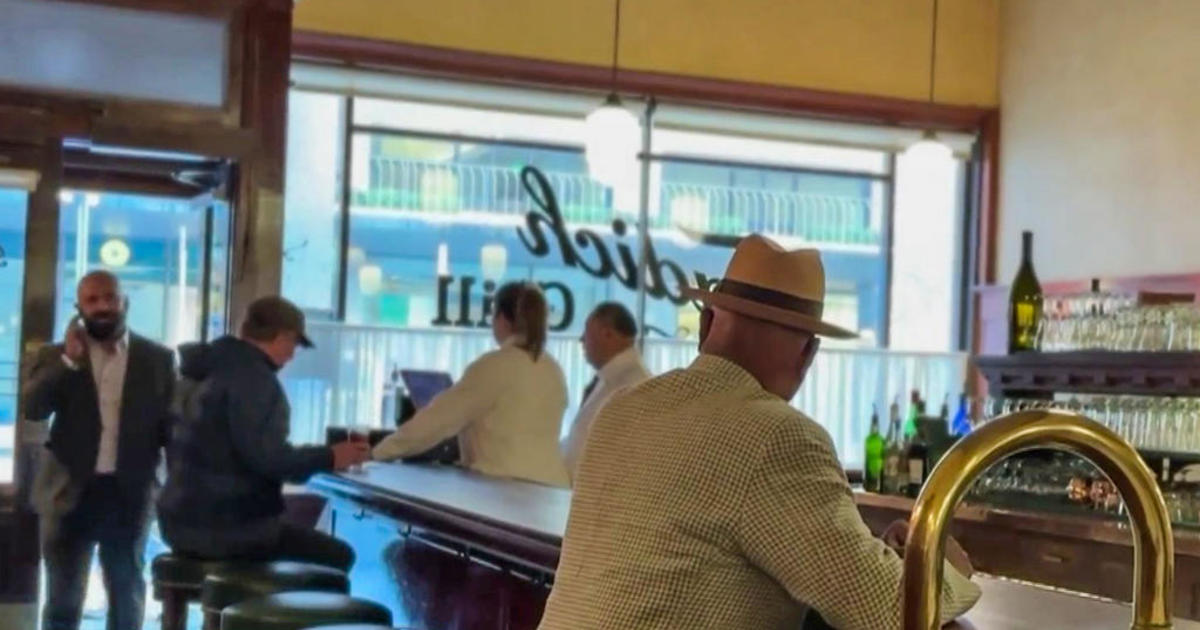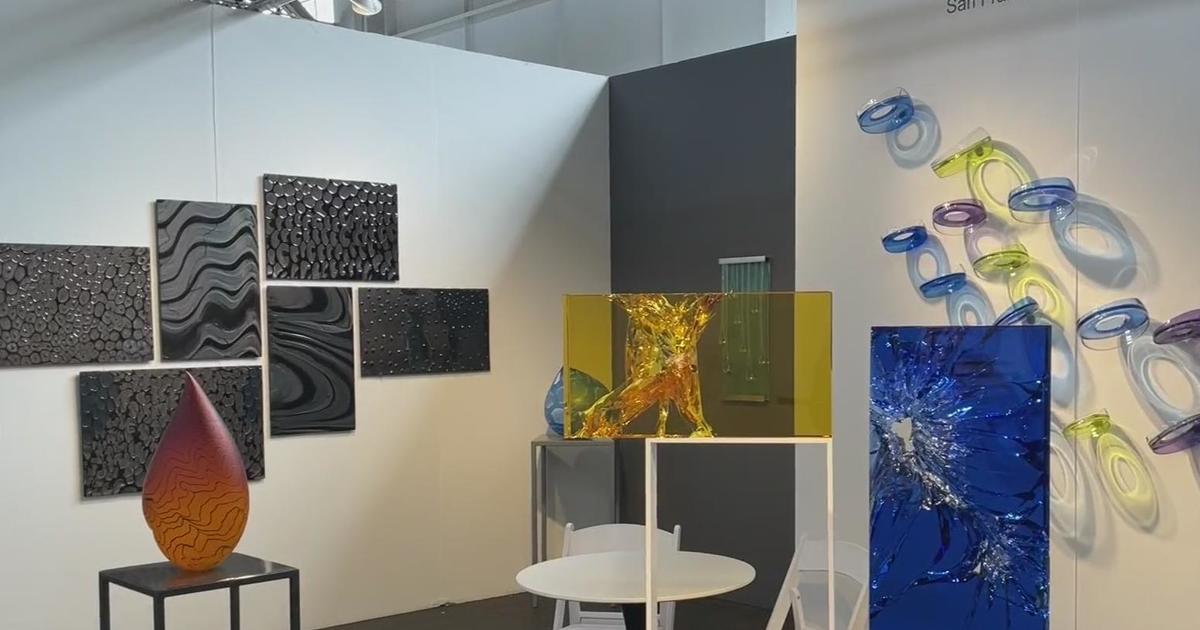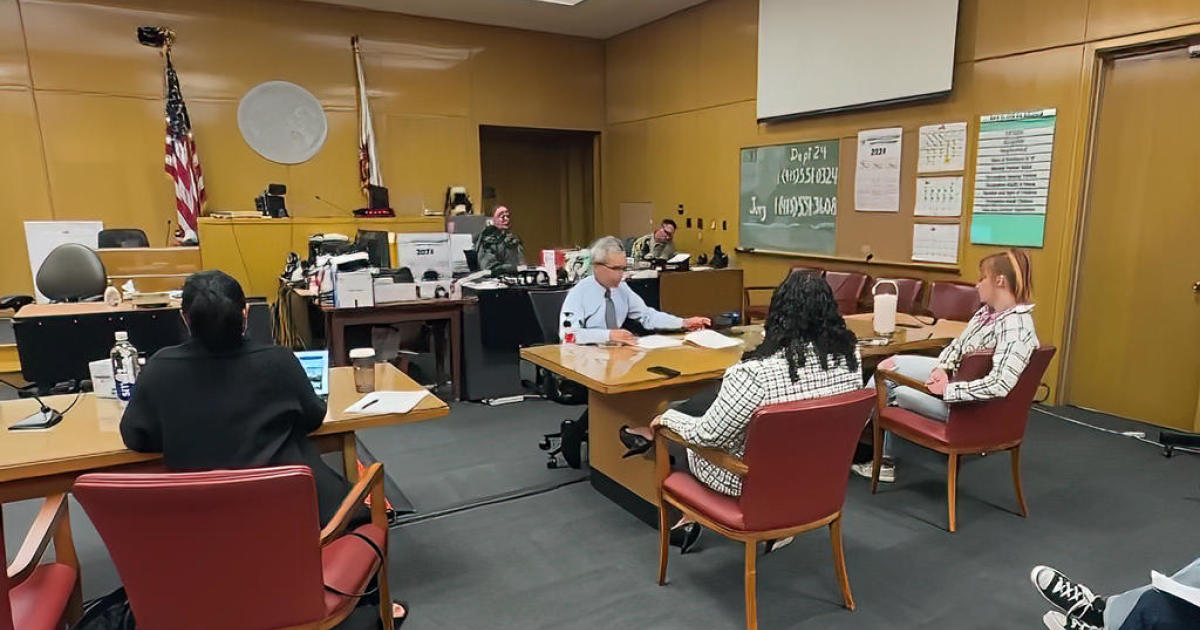Peninsula 'eco-gardenista' packs special seeds to help save pollinators
SAN CARLOS – California's extreme weather and warming climate are posing a threat to some of our most vital creatures, bees and other wild pollinators critical to our fruit and vegetable crops. A woman on the Peninsula who describes herself as an "eco-gardenista" is on a mission to bolster their numbers.
Jennifer Dirking was packaging wildflower seeds. She called them the "perfect appetizer," to serve up in her "garden restaurant" for some very important clients: the birds, bees, and butterflies.
"I find that you really have to make a choice here the plants evolved to be eaten by the insects and we have we're at a critical moment. Now we need to decide: do you love the plant, or do you love the planet? These the insects that eat the plants, feed the birds be the whole ecosystem, and we really need that we need to embrace that," she said.
Dirking explained how it's these easy-to-plant seeds that are a gateway to teaching others how they can help the diminishing population of pollinating insects.
"We have a very complicated web, and we need to try to feed it and so the wildflowers are just sort of an easy entree to that, you know it's very easy to start off with wildflowers. But then we can move into the bigger plants, the shrubs, the evergreens, the foundation, plants, the trees, and we can build on that foundation," noted the gardener.
Dirking decided to plant a garden, during the pandemic as a project. Her efforts quickly turned into a mission to save pollinators.
"We had this 'aha' moment as we were designing our Covid garden, and we were going to do English, all sorts of an English garden with beautiful plants to you know, have cut flowers in our home, and sort of you know, it's like a garden for us," Dirking said. "And then we realize… your garden really needs to do its part to save the planet. It needs to save the birds. And it needs to save the butterflies and the bees and all of the insects that really depend on these plants. So, we scrapped all of our plans and we went completely native."
New research has revealed that the spread of urbanization is speeding up the population declines of pollinators such as bees and butterflies that are responsible for pollinating about 30% of the food we eat.
Planting pollinating plants like native wildflowers compared to non-native plants with lower food sources like grass and roses … could make strides in protecting the insects … and therefor our food.
"In order to have a balanced diet, a nutritionally rich diet, we nowadays depend on many crops which provide us with fruits and which provide with vegetables, nuts and oils. And all those crops are relying on animal pollination," remarked Dr. Panagiotis Theodorou, a zoologist with the Institute of Biology at the Martin Luther University Halle-Wittenberg in Halle, Germany.
Theodorou said it's not too late for humans to get involved and to help.
"If they give, let's say one part of their garden, to wild flowering plants that is one step forward to let's say welcoming bees in their gardens and increasing population sizes," he explained.
Back in San Carlos, Dirking has distributed more than 3,000 seed packets to help others get started on a "garden restaurant" of their own.
"It's so rewarding, because, like I said, we've tried to create a bee, butterfly and bird restaurant. And so, we'd love to see happy customers. We love to see them using the material that we've put down. The acorns that we let stay on the ground, the leaves that we let stay on the ground have created a lot of forage for all the different insects and squirrels and birds and even butterflies," noted the "eco-gardenista."



